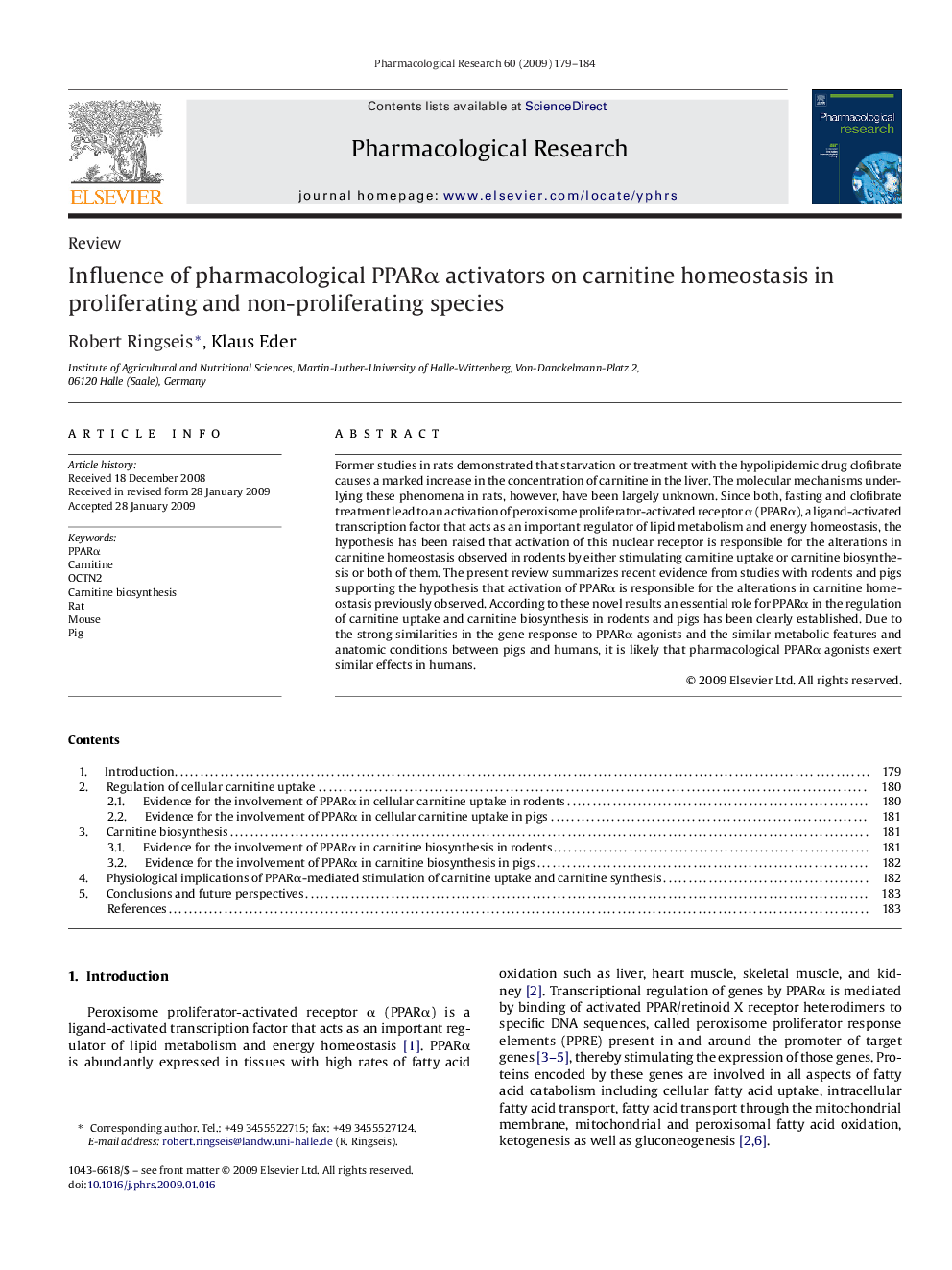| Article ID | Journal | Published Year | Pages | File Type |
|---|---|---|---|---|
| 2562538 | Pharmacological Research | 2009 | 6 Pages |
Former studies in rats demonstrated that starvation or treatment with the hypolipidemic drug clofibrate causes a marked increase in the concentration of carnitine in the liver. The molecular mechanisms underlying these phenomena in rats, however, have been largely unknown. Since both, fasting and clofibrate treatment lead to an activation of peroxisome proliferator-activated receptor α (PPARα), a ligand-activated transcription factor that acts as an important regulator of lipid metabolism and energy homeostasis, the hypothesis has been raised that activation of this nuclear receptor is responsible for the alterations in carnitine homeostasis observed in rodents by either stimulating carnitine uptake or carnitine biosynthesis or both of them. The present review summarizes recent evidence from studies with rodents and pigs supporting the hypothesis that activation of PPARα is responsible for the alterations in carnitine homeostasis previously observed. According to these novel results an essential role for PPARα in the regulation of carnitine uptake and carnitine biosynthesis in rodents and pigs has been clearly established. Due to the strong similarities in the gene response to PPARα agonists and the similar metabolic features and anatomic conditions between pigs and humans, it is likely that pharmacological PPARα agonists exert similar effects in humans.
